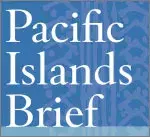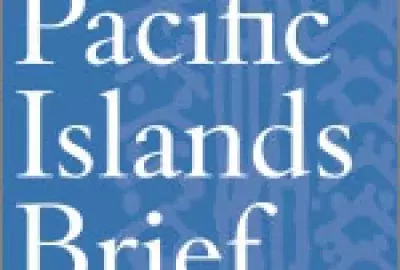
Additional titles in the Pacific Islands Brief series From the time of Fiji's independence in 1970, the country has struggled to adopt an electoral system that adequately caters for its multi-ethnic society, which is predominantly indigenous Fijian or Indo-Fijian. The political struggle between the two main ethnic groups, and within the ethnic groups, has resulted in coups in 1987 (twice), 2000, and 2006. Since independence, Fiji has used a bicameral system of parliament, with a House of Representatives and a Senate. The Senate has been an appointed body, largely composed of nominees from the Great Council of Chiefs, Prime Minister, and Opposition. The Constitution Commission of Fiji is currently undergoing a consultative process ahead of drafting a new constitution for the country, which will include the basis of a new electoral system for Fiji. Despite all the problems of the recent past and the present, Fiji currently has an excellent opportunity to design an electoral system that is thoughtful of the country's unique ethnic and cultural mix, and which maximises the ability for parliament to be a true and accurate reflection of the wishes of the Fijian people. Irrespective of which electoral system is chosen for the re-introduction of democracy in Fiji, it is crucially important to allow political parties ample opportunity to re-establish with their members, and with the general population, well in advance of the election. This will allow the parties to develop policy platforms that address the concerns and hopes of the Fijians. It will also allow parties to adopt thorough candidate selection processes. |
Additional titles in the Pacific Islands Brief series From the time of Fiji's independence in 1970, the country has struggled to adopt an electoral system that adequately caters for its multi-ethnic society, which is predominantly indigenous Fijian or Indo-Fijian. The political struggle between the two main ethnic groups, and within the ethnic groups, has resulted in coups in 1987 (twice), 2000, and 2006. Since independence, Fiji has used a bicameral system of parliament, with a House of Representatives and a Senate. The Senate has been an appointed body, largely composed of nominees from the Great Council of Chiefs, Prime Minister, and Opposition. The Constitution Commission of Fiji is currently undergoing a consultative process ahead of drafting a new constitution for the country, which will include the basis of a new electoral system for Fiji. Despite all the problems of the recent past and the present, Fiji currently has an excellent opportunity to design an electoral system that is thoughtful of the country's unique ethnic and cultural mix, and which maximises the ability for parliament to be a true and accurate reflection of the wishes of the Fijian people. Irrespective of which electoral system is chosen for the re-introduction of democracy in Fiji, it is crucially important to allow political parties ample opportunity to re-establish with their members, and with the general population, well in advance of the election. This will allow the parties to develop policy platforms that address the concerns and hopes of the Fijians. It will also allow parties to adopt thorough candidate selection processes. |






